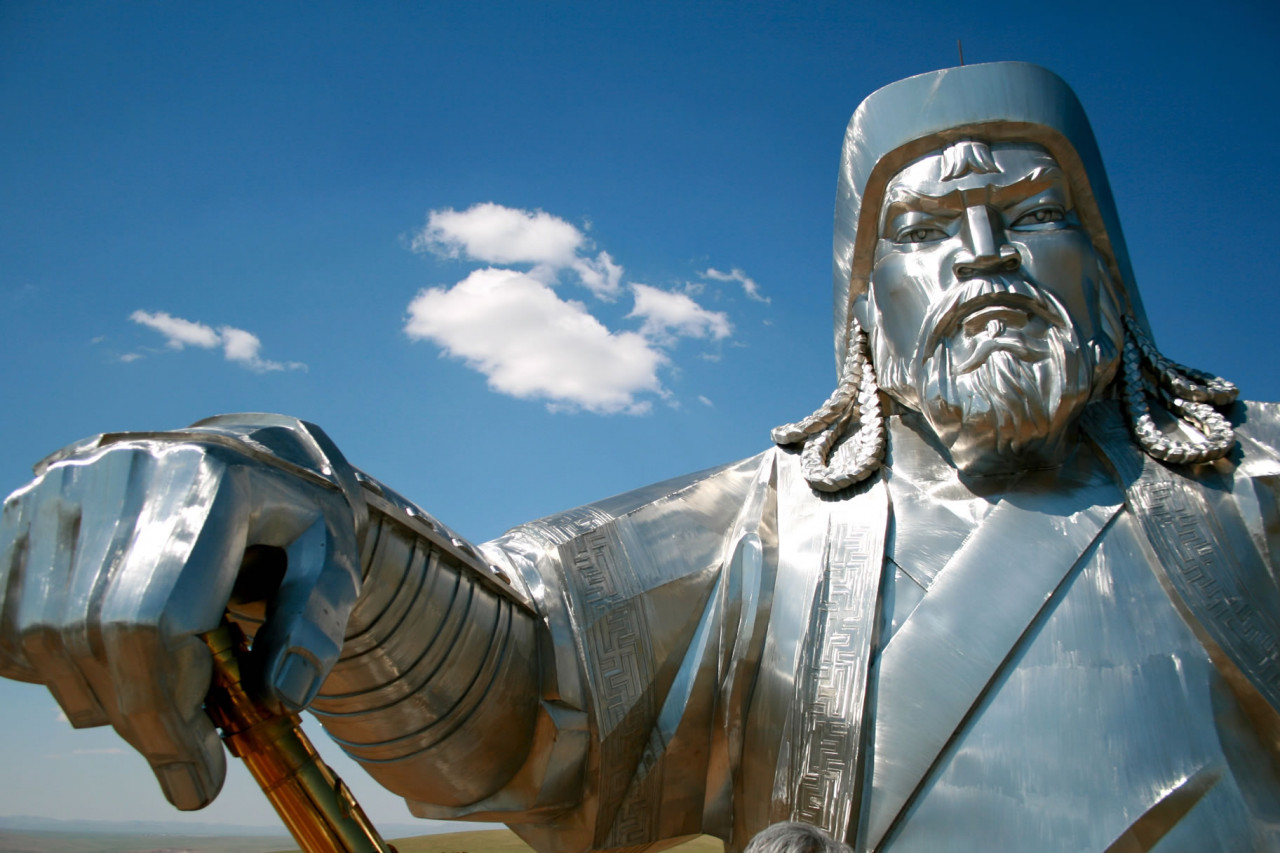
Genghis Khan, born as Temujin, is one of history's most intriguing figures. He founded the Mongol Empire, which became the largest contiguous empire ever. But who was this man behind the legend? Did you know he united warring tribes under a single banner? Or that his innovative military tactics changed warfare forever? His influence stretched far beyond the battlefield, impacting trade, culture, and even the genetic makeup of populations. Genghis Khan's legacy is a mix of brutal conquests and remarkable achievements. Ready to learn more? Here are 30 fascinating facts about the man who reshaped the world.
Early Life of Genghis Khan
Genghis Khan, born as Temujin, rose from humble beginnings to become one of history's most formidable conquerors. His early life was marked by hardship and struggle, shaping his future leadership.
- Temujin was born around 1162 near the Onon River in Mongolia.
- His father, Yesugei, was poisoned by a rival tribe when Temujin was just nine years old.
- After his father's death, Temujin's family was abandoned by their clan, leaving them to fend for themselves.
- Temujin killed his half-brother Bekhter in a dispute over food, showcasing his early ruthlessness.
- He was captured and enslaved by the Tayichi'ud tribe but managed to escape with the help of a sympathetic guard.
Rise to Power
Temujin's journey to becoming Genghis Khan involved uniting the Mongol tribes and overcoming numerous obstacles. His strategic mind and relentless ambition played crucial roles.
- He formed a blood brotherhood with Jamukha, a childhood friend, who later became his rival.
- Temujin married Börte, who was kidnapped by the Merkit tribe shortly after their marriage. He rescued her with the help of his allies.
- He defeated the powerful Naiman tribe, solidifying his control over the Mongolian plateau.
- In 1206, Temujin was declared Genghis Khan, meaning "universal ruler," by a council of Mongol chiefs.
- Genghis Khan implemented a meritocratic system, promoting individuals based on ability rather than birthright.
Military Strategies and Tactics
Genghis Khan's military genius was evident in his innovative strategies and tactics, which allowed the Mongol Empire to expand rapidly.
- He organized his army into units of ten, a system called the decimal system, which improved coordination and efficiency.
- The Mongol army used psychological warfare, spreading fear to weaken enemy morale before battles.
- Genghis Khan employed espionage and intelligence gathering to gain an advantage over his enemies.
- He utilized a network of relay stations, known as the Yam system, for efficient communication across vast distances.
- The Mongol army was highly mobile, using horses to cover great distances quickly and launch surprise attacks.
Conquests and Expansion
Genghis Khan's conquests reshaped the world, creating the largest contiguous empire in history. His campaigns were marked by both brutality and strategic brilliance.
- He conquered the Western Xia dynasty in 1209, marking the beginning of his major conquests.
- In 1215, Genghis Khan captured the Jin dynasty's capital, Zhongdu, which is modern-day Beijing.
- He launched a campaign against the Khwarezmian Empire in 1219, annihilating its cities and armies.
- Genghis Khan's forces reached as far west as the Caspian Sea, extending the empire's boundaries.
- The Mongol Empire facilitated trade and cultural exchange along the Silk Road, connecting East and West.
Legacy and Impact
Genghis Khan's legacy extends beyond his conquests. His impact on culture, law, and governance continues to be felt today.
- He established the Yassa, a code of laws that promoted order and discipline within the empire.
- Genghis Khan promoted religious tolerance, allowing his subjects to practice their faiths freely.
- He encouraged the exchange of knowledge and ideas, fostering a period of cultural and scientific advancement.
- The Pax Mongolica, or Mongol Peace, ensured safe passage for traders and travelers across the empire.
- Genghis Khan's descendants continued to rule vast territories, influencing the course of history for centuries.
Personal Life and Death
Despite his fearsome reputation, Genghis Khan's personal life was complex and multifaceted. His death marked the end of an era but his influence persisted.
- Genghis Khan had multiple wives and numerous children, many of whom played significant roles in the empire.
- He valued loyalty and rewarded those who demonstrated unwavering allegiance to him.
- Genghis Khan died in 1227 during a campaign against the Western Xia dynasty. The exact cause of his death remains a mystery.
- His burial site remains undiscovered, shrouded in legend and secrecy.
- Genghis Khan's empire was divided among his sons, leading to the creation of several powerful khanates.
Genghis Khan's Lasting Impact
Genghis Khan's influence on history can't be overstated. His empire reshaped the world map, connecting East and West like never before. Under his rule, trade routes flourished, cultures mingled, and innovations spread far and wide. Despite his fearsome reputation, he implemented progressive policies, like religious tolerance and merit-based leadership. His legacy isn't just about conquest; it's about the lasting changes he brought to societies across continents. From military tactics to governance, his methods are still studied today. Genghis Khan's story is a testament to the power of vision and determination. His life, filled with both brutality and brilliance, continues to captivate historians and enthusiasts alike. Understanding his impact helps us appreciate the complexities of history and the forces that shape our world.
Was this page helpful?
Our commitment to delivering trustworthy and engaging content is at the heart of what we do. Each fact on our site is contributed by real users like you, bringing a wealth of diverse insights and information. To ensure the highest standards of accuracy and reliability, our dedicated editors meticulously review each submission. This process guarantees that the facts we share are not only fascinating but also credible. Trust in our commitment to quality and authenticity as you explore and learn with us.


